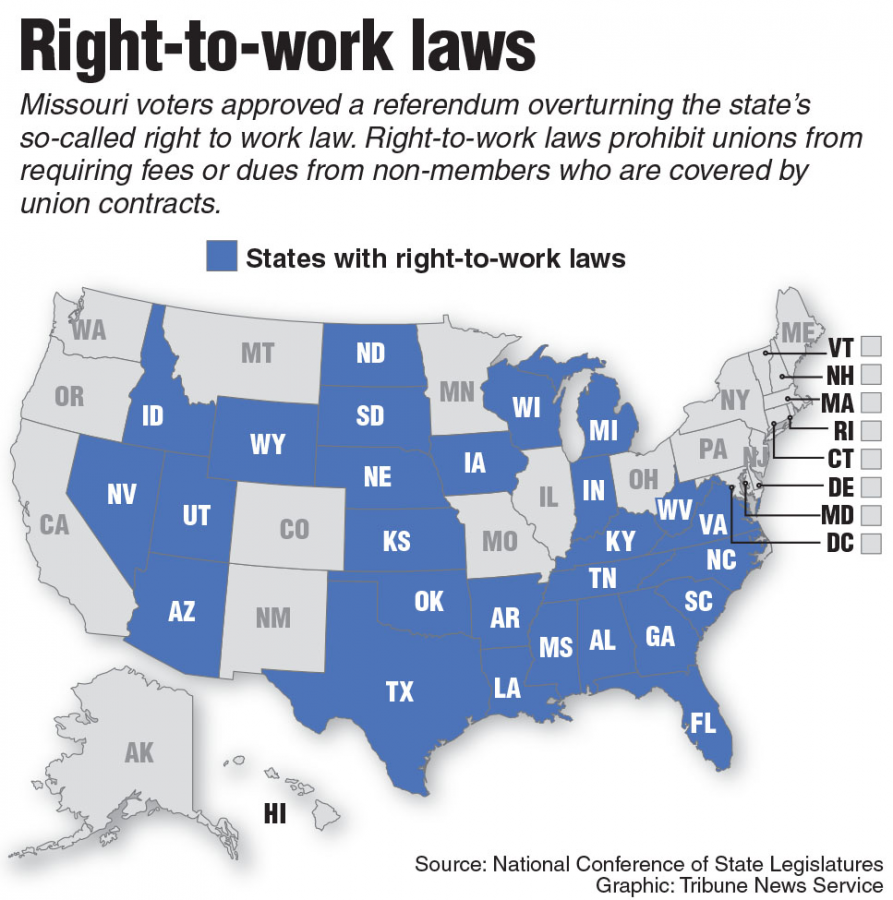Wrong or Right to Work
‘Right-to-Work, wrong for Missouri;’ ‘Vote yes on Prop A.” These slogans have bombarded front lawn signs, billboards, commercials, bumper stickers and family tables throughout the state of Missouri. The frustrating part is not knowing what this mysterious ‘Prop A’ is and how it would affect Missourians. Both ends of the spectrum had plenty to say about their thoughts on the Right-to-Work bill and how they felt it would either harm or help families across the state. It is first important to understand the fundamentals of what Proposition A entailed.
“A ‘yes’ vote will adopt Senate Bill 19 (Right-to-Work), passed by the General Assembly in 2017.” according to the Missouri Secretary of State, Jay Ashcroft. “If adopted, Senate Bill 19 will amend Missouri law to prohibit, as a condition of employment, forced membership in a labor organization or forced payments of dues or fees, in full or pro-rata (‘fair-share’), to a union,”
Essentially, while Right-to-Work was instated, it was illegal for unions to force potential employees to join their union and pay dues in order to work for their particular company. The matter of if Right-to-Work was good or bad came down to the beliefs of voters.
“In the last 15 years, Right-to-Work states have grown at 39 percent in personal income and non-Right-to-Work states by 25 percent. If you adjust for cost of living, Right-to-Work state workers make $2,250 more than their counterparts in forced-union states,” State Senator Bob Onder said, according to St.Louis Public Radio.
While increased wages sound like nothing but positive changes,some feel that Prop A would not have given this outcome.
“The median household income is $8,700 lower in Right-to-Work states, and that’s why you’ve seen so much enthusiasm across the state [against ‘Prop A’],” Advisor Jack Cardetti said.
Both sides have statistics supporting their opinions regarding Right-to-Work, which makes it harder to determine who is right. Union workers only made up 8.7 percent of Missouri Workers in 2017, according to the Bureau of Labor Statistics.com. One factor of this power shift could be the differences in campaign funding. Anti-’Prop A’ campaigns raised around $11 million, while pro-’Prop A’ campaigns only raised around $5.6 million, according to The Saint-Louis Post Dispatch.
Despite Missouri striking down the Right-to-Work law passed in the state legislature, its citizens can still use initiative to bring bills to their legislation to change it to how they desire. If enough Missourians wish to try bringing back Right-to-Work, it could be on the ballot at another time. No matter the outcome, Americans still have their civic duties and can voice their opinions on laws and candidates.

































